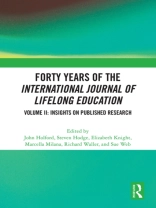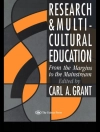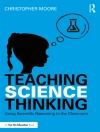Over the last forty years, the International Journal of Lifelong Education has become a global leader in the field of research on adult education and lifelong learning. Drawing extensively on articles published in the journal, scholars from Africa, Asia, North and South America, Australasia and Europe reflect in two volumes on how the field has evolved over four decades, and on the strengths and weaknesses of its contributions to knowledge.The second of two volumes, this book is b...
Over the last forty years, the International Journal of Lifelong Education has become a global leader in the field of research on adult education and lifelong learning. Drawing extensively on articles published in the journal, scholars from Africa, Asia, North and South America, Australasia and Europe reflect in two volumes on how the field has evolved over four decades, and on the strengths and weaknesses of its contributions to knowledge.The second of two volumes, this book is based on a collective research project, carried out largely by members of the journal’s editorial advisory board, on what it has published over four decades. The introduction explains the origins development of the journal, the sometimes-passionate debates in the wider field, and the approach and concerns of those who conducted this research. Other chapters explore critical areas of debate (citizenship and its learning, learning and work, and widening participation and higher education); ‘political’ and ‘scientific’ dimensions in intergovernmental organisations’ policy work; inequality and lifelong education; opportunities and tensions created in universities by lifelong learning; and the development of studies of learning in later life since the 1980s. Two concluding chapters examine the influence of Paolo Freire and Jack Mezirow.The two volumes will appeal to researchers, teachers and professionals in lifelong learning and adult education, as well as to those interested in the development of knowledge in fields of science and practice.












